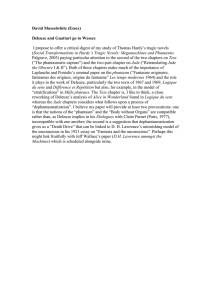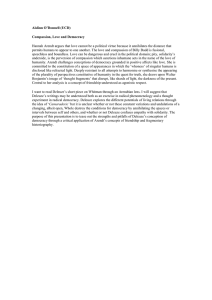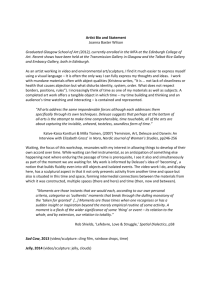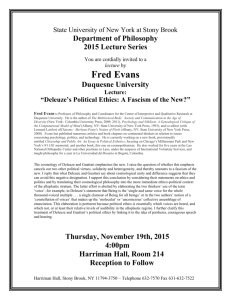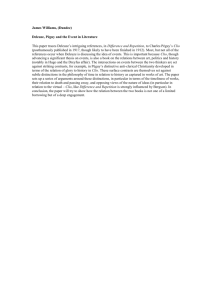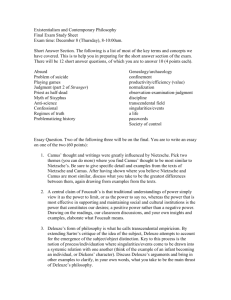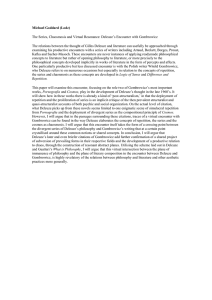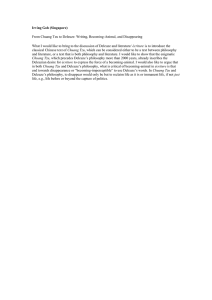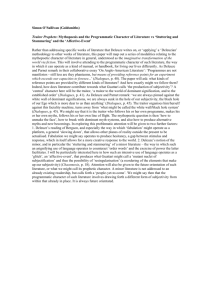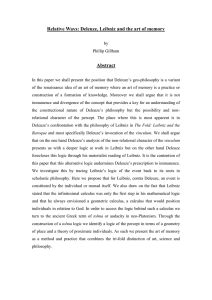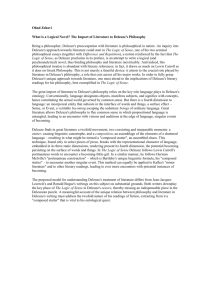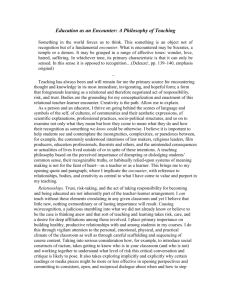concept_definition
advertisement
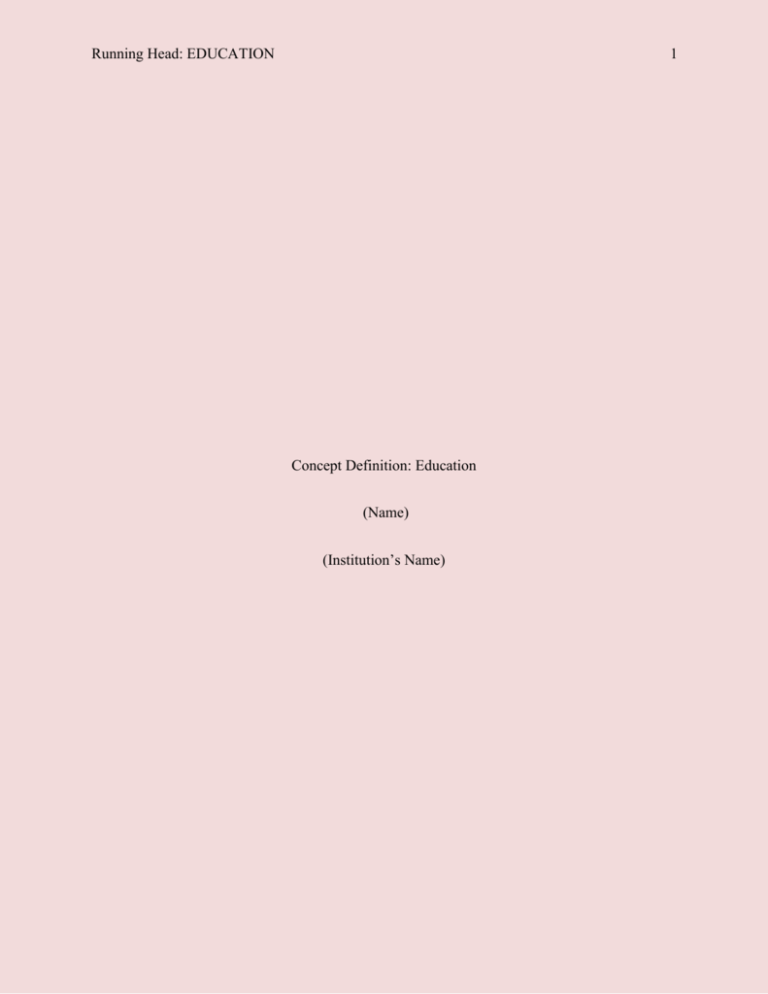
Running Head: EDUCATION 1 Concept Definition: Education (Name) (Institution’s Name) EDUCATION 2 What is a concept? Concepts are defined as mental boxes that keep important things we experience in our lives. In his book, “What is Philosophy”, Deleuze explains that a concept is composed of components defining it (Deleuze, 1994). Moreover, concept is a class of things that are alike with similar characteristics. However, other definitions have come to existence; some define it as a mental image that summarise seemingly related observations or experiences. Concept has also been termed as something that asks a question. Examples of concepts are apathy, alienation, presidential behaviour, education, freedom, efficacy, public interest, justice, ideology among others. Therefore, this paper discuses Education, a concept defined by various components such as life experience, schools, libraries among others. However, most of discussion in this project reflects on school as a component of Education. According to scholars, Education is a way of learning where there is transfer of knowledge and skills from one generation to another. Knowledge acquired through education largely enhances one’s mental capabilities enabling him or her make mature decisions. Training, research, teaching, guidance are some ways of achieving this enlightening experience. Normally, Education requires guidance of other people who are termed as tutors or teachers. However, it is Important to note that education can a times be automatic. This is where someone learns either by observation or by operationalization (Swain, 2012). Early civilizations in Babylonia and ancient Egypt pioneered the establishment of education system. Rapid rise in these civilizations was characterised by transfer of knowledge from one generation to another that became complicated over time. Thus, people in those early societies sought education as a way of recording, preserving, and accumulating their heritage. Direct experience was unable to impart reading and writing skills; hence, a place solely for learning came to its establishment, a school. Students in the past learned from teachers, this EDUCATION 3 learning occurred in classrooms with the information taught sourced majorly from textbooks. Teachers used to ask questions the students during most of the learning sessions. However, current Education operates systematically, it is well defined and separated into primary, secondary, college and institutions of higher learning. Students still learn from teachers or tutors, however, learning places have diversified such that learning can take place in a school, outside a school, and virtually. Presently, information sources range from books, internet to movies. The figures below illustrate some of the difference between early and current education. Figure 1 Early Education Figure 2 Current Education Nonetheless, Education’s main goal is achieved when learning is in track with its operating principles. Education in schools will serve as an example illustrating its operating principles. Operating Education with integrity, successful endeavours in education over time is attributed to respect and truth among its participants. Inclusion of all education stakeholders, valuing voices from various people such as scholars, suggestions from research institutions contributes to success of the concept. Equality and quality of education is a key operating principle of education. Innovation is a principle that makes Education the source of rapid EDUCATION 4 development experienced in the globe. As observed, the greater portion of the world is today literate and civilized because of knowledge imparted on them through learning. Education requires efficient resources to be fully functional and effective in learning. Provision of these resources is a state’s responsibility (Samuel Bowles, 2011) . Education is a concept that has passed through various huddles to reach its current position. In some countries, education was racially segregated and unfair amongst people; A good example is South Africa where in the apartheid regime black were separate from other races and provide with poor education as compared to other races. However, Education is currently integrated globally and its provision is equal to everyone worldwide. Consequently, it is prudent to note that education is important in the society, thus, it should be taken seriously at all levels. The government, parents, learners and the society should provide the favourable conditions for learning. It is through education that the greater percentage of the world population prospers. In addition, Education is useful when teachers are efficient and effective in their teachings. Teachers are part of the progressive and inspirational human endeavour (Kevin Ryan, 2012). In conclusion, Education as a concept discussed is a basic need to everyone. Nations that value education have succeeded in their developments since decisions made by educated individuals are wise and successful. Therefore, it is more than necessary to embrace the concept of education. In addition, embracing education would mean being active participants either directly or indirectly. EDUCATION 5 Reference Carey, S. (2011, May 13). Oxford Series in Cognitive Development. Retrieved October 10, 2014, from The Origin of Concepts: http://www.amazon.com/Origin-Concepts-OxfordCognitive- Development/dp/0199838801 Deleuze, G. (1994). What is Philosophy. New York: Verso. Kevin Ryan, J. C. (2012). Those Who Can, Teach. Stamford: Cengage Learning. Samuel Bowles, H. G. (2011, October 11). Schooling In Capitalist America. Retrieved October 10, 2014, from Educational Reform and the Contradictions of Economic Life: http://www.amazon.com/Schooling-Capitalist-America-EducationalContradictions/dp/1608461319 Swain, H. (2012, October 1). The Guardian. Retrieved October 10, 2014, from Will university campuses soon be 'over'?: http://www.theguardian.com/education/2012/oct/01/universitycampuses-decline-elearning-students
